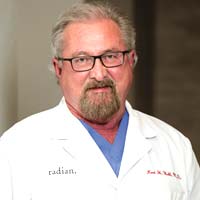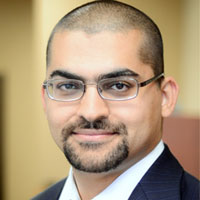This Covid break is the best time to get your crowning glory back!
The demand for hair transplant is booming. We are
seeing an unusual surge in demand during Covid times.
DHI hair transplant is minimally invasive and
has literally no downtime. The patients can return to work the very next day,
though there is a little awkwardness about the post-transplant look for about a
week or so, especially for patients with a busy social life.
These customers are taking advantage of the
current compulsory social isolation in getting procedures done while at home.
32-year-old Rishabh Malhotra (name changed for
privacy) had been planning to get a procedure done with us for the past two years
but he was not able to take out that one week which he needed after the
procedure.
In his own words, I had always planned on
getting my procedure done in the winters as I wanted to avoid sporting a shaved
head during the summer vacations. I couldn’t imagine walking around with a
shaved head on the beaches of Bali. And winters were about weddings and
festivals. I just could not find the right opportunity for my own hair.
During Covid times I am working from home and
this is a great opportunity to finally finish my Project Hair. he says, while
watching a movie as the doctor implanted hair on his scalp at our Delhi clinic.
And the best part is I didn’t even have to take a single day off from work,
says Rishabh who had scheduled conference calls from the next morning.
There are hundreds of people like Rishabh who
are reaching out to our clinics for doing procedures as they feel this is the
best time for this procedure.
Is it safe?
One
of the biggest questions clients have while planning a session during the
pandemic is whether there is any risk of exposure or contracting the Covid -19.
DHI has always been known to put patient safety first and the same is true of
us now.
In April this year, DHI’s London office drafted the Covid-19 safety protocols
which had to be implemented globally across all of our 75 clinics, before any
of them reopened for patients. All DHI clinics are certified by UK Care Quality
Commission and ISO and the safety standards were drawn up to adhere to the
protocols formulated by both bodies.
Among other things, all DHI employees are subject to multiple temperature checks a day and must wash hands half-hourly. Patients are allowed to visit by
appointment only and the entire clinic is sanitized after every visit.
Additionally, UV sterilization is done daily at the clinics to ensure hygiene
and safety. Video consultations are also available for patients unwilling to
visit the clinic.
In the words of Dr Ajay Dubey, DHI’s medical director, We at DHI are following European safety standards which are much more stringent than those being
followed by even the Covid facilities in India. Clients need to just focus on
maintaining the sanctity of the safety bubble created between their home, their
car and our clinic to curtail exposure to non-sterilized environments. DHI
clinics are one of the most sterilized places you can find in your city
today.
If you would like more information, don't hesitate to call us on 1800-103-9300
Posted in
Hair Transplant by:
Sang Ale
9/25/2020 | Hairfear
Frequently asked questions about hair transplant procedures
How much does a hair transplant cost?
Hair transplants can vary in price based off of the area in the world that you are interested in getting a hair transplant as well as the size of the area where you may need a hair transplant. Experienced doctors in the United States will often charge some of the highest prices for a hair transplant worldwide and this is why so many travelers make the move to other parts the world like Turkey, India, Thailand, Mexico...etc for their hair transplants.
Will a hair transplant hurt?
Although hair transplants may look like a particularly
unpleasant or painful experience is actually very little discomfort involved
with the surgery itself. Hair transplants are always done under an anesthetic so there's absolutely zero pain during the treatment itself. Many people actually relate the process as being very similar to going to the dentist for filling or root canal. Mild pain can persist over the course of postop treatment but he generally just resumes for a few days.
Who can deliver the best surgery?
It's usually best to consider working with surgeons who have and IAHRS certification or international alliance of hair restoration surgeons recognition. IAHRS can often deliver recommendations for the best surgeons in each particular area.
Is this scarring noticeable?
Any type of hair transplant will require the use of incisions throughout the scalp. There can also sometimes be a small scar from the donor area towards the back of the scalp. Asking to look at photos of the surgeon's previous work will help you to see roughly how bad the scarring could be. In most cases an experienced professional can limit the look of scarring and noticeable marks from the surgery.
How long does it take for the hair to grow?
In most cases hair growth will start within eight months and you can start to see a full effect from the hair transplant after a full year. The initial signs of growth can usually start between 3 to 4 months after the surgery.
Are the results permanent?
The hair follicles that are transplanted are generally the ones which are genetically resistant against the symptoms of baldness. As long as you receive hair loss treatment later in your life after the symptoms of balding have started to subside, you can have a better chance at permanent results.
While everyone know you've had surgery?
If you want to limit the chance that people may find out about your surgery it's important to give at least three weeks of healing as the surgical area will be affected and red just after surgery. After around a month of healing it can look far less noticeable. You could consider wearing a hat while time passes or opting for some extra time off if possible.
How long should I rest after surgery?
It's recommended to rest for at least a few days after surgery so that your body can recover. Trenton to over exert yourself and limit sexual activity, running in the gym for around 10 days after surgery.
Is it possible to lose more hair as a result of surgery?
There is always a chance of shock loss which happens when the hair is weak and miniaturizing after the surgery. As long as the surgeon is choosing the correct hair follicles and performing the surgery well it's possible to minimize the chance of this happening however.
Will I need another hair transplant?
The need for another transplant really depends on the individual. With a solid foundation surgery and working to potentially bolster results with drug therapy, you can improve the stability of the hair that was transplanted as well as prevent further loss. Getting a hair transplant early
on in your 20s or early on in life could lead to needing long-term transplants as hair loss can be progressive.










